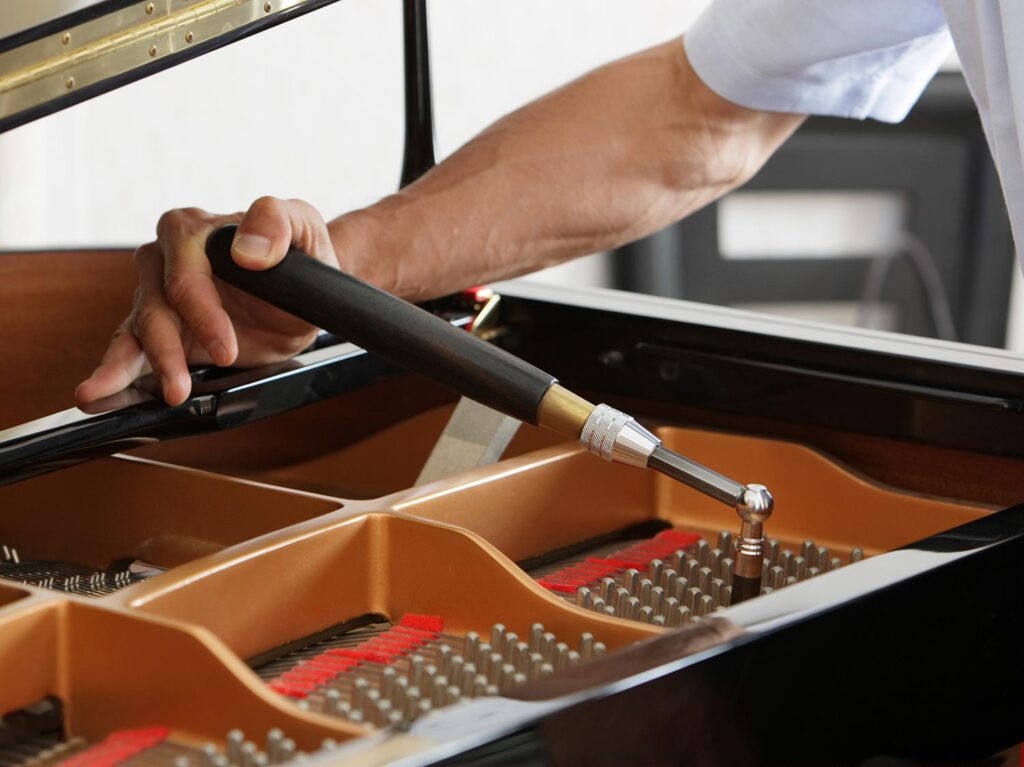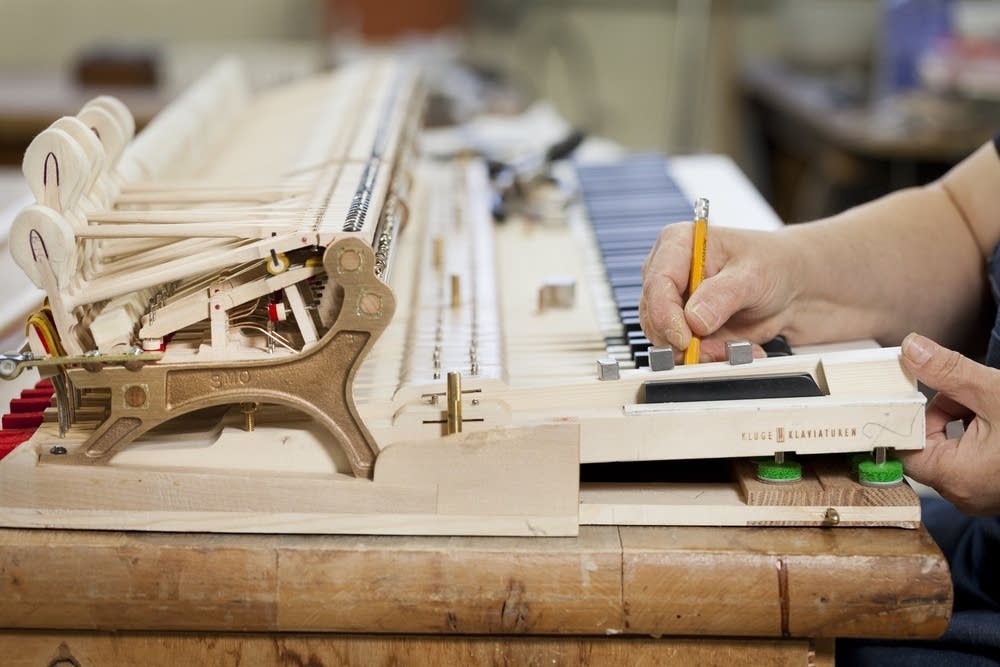Maintaining pianos in a commercial setting is essential for preserving their quality and longevity. Whether you own a music school, a hotel, or any other business that features pianos, proper care and maintenance are crucial. This blog will explore the best practices for keeping your pianos in excellent condition, ensuring they provide beautiful music for years to come.
Regular Tuning and Voicing
Regular tuning is a fundamental aspect of piano maintenance. In a commercial setting, where pianos are often used daily, it is recommended to tune them at least three to four times a year. This frequency helps maintain the correct pitch and ensures that the piano produces harmonious sounds. In addition to tuning, voicing is another important process. Voicing adjusts the piano’s tone and timbre, ensuring that each note is balanced and consistent across the keyboard.

Climate Control and Humidity Management
Pianos are sensitive to changes in temperature and humidity. In a commercial setting, where environmental conditions can vary, it’s crucial to maintain a stable climate. Ideally, the temperature should be kept between 68-72°F, with a humidity level of 40-50%. Extreme changes can cause the wood to expand or contract, leading to tuning instability and potential damage to the piano’s structure. Installing a climate control system or using a humidity control device can help maintain optimal conditions for the instrument.
Regular Cleaning and Polishing
Keeping the piano clean is vital for its appearance and functionality. Dust and debris can accumulate on the keys, strings, and other internal components, affecting the sound quality and performance. Use a soft, dry cloth to wipe down the exterior and keys regularly. For deeper cleaning, consult a professional to avoid damaging delicate parts. Additionally, polishing the piano’s finish with a suitable polish can help preserve its shine and protect it from scratches.
Professional Inspection and Maintenance
Hiring a professional technician for regular inspections is an important aspect of piano maintenance. A qualified technician can identify potential issues, such as worn-out hammers, loose pins, or other mechanical problems, before they become significant. Regular maintenance, including regulation and action adjustments, ensures that the piano remains responsive and enjoyable. Professional inspections are especially crucial for pianos in commercial settings, where they are used more frequently and may experience greater wear and tear.
Proper Placement and Handling
The placement of the piano in your commercial space plays a significant role in its maintenance. Avoid placing the piano near windows, heaters, or air conditioning vents, as these can cause temperature fluctuations and humidity changes. Additionally, ensure the piano is positioned on a stable, level surface to prevent damage to the legs and casters. When moving the piano, always use professional movers with experience handling delicate instruments. Proper handling and placement can prevent unnecessary stress on the piano’s structure and internal components.

Why Choose Us
At TX Pianos, we understand the importance of proper piano maintenance, especially in commercial settings where pianos are integral to the ambiance and experience. Our team of experienced technicians offers comprehensive piano maintenance services, including tuning, voicing, regulation, and repairs. We serve the Austin and San Antonio areas, providing reliable and professional services to ensure your piano stays in top condition. Our commitment to quality and customer satisfaction sets us apart, making us the preferred choice for piano maintenance in Austin and San Antonio.
The Importance of Regular Servicing
Regular servicing is essential for maintaining the piano’s sound quality and overall health. Pianos in commercial settings often face more wear and tear due to frequent use. Regular servicing can identify issues early, preventing costly repairs and prolonging the life of the instrument. Whether it’s adjusting the action, replacing worn parts, or fine-tuning the instrument, regular servicing ensures the piano performs at its best.
Choosing the Right Piano Cover
A high-quality piano cover is an excellent investment for protecting your instrument. In a commercial setting, where pianos may be exposed to dust, spills, and accidental bumps, a cover can prevent damage to the finish and internal components. Choose a cover made from durable materials that provide adequate protection while allowing for ventilation. Custom covers that fit snugly over the piano are ideal, as they offer the best protection.
Acoustic Considerations
In a commercial setting, the acoustics of the room can significantly impact the sound of the piano. Consider the room’s size, shape, and materials when placing the piano. Soft furnishings, carpets, and curtains can absorb sound, while hard surfaces can create echoes. Adjusting the room’s acoustics can enhance the piano’s sound quality and create a more pleasant listening experience for your patrons.